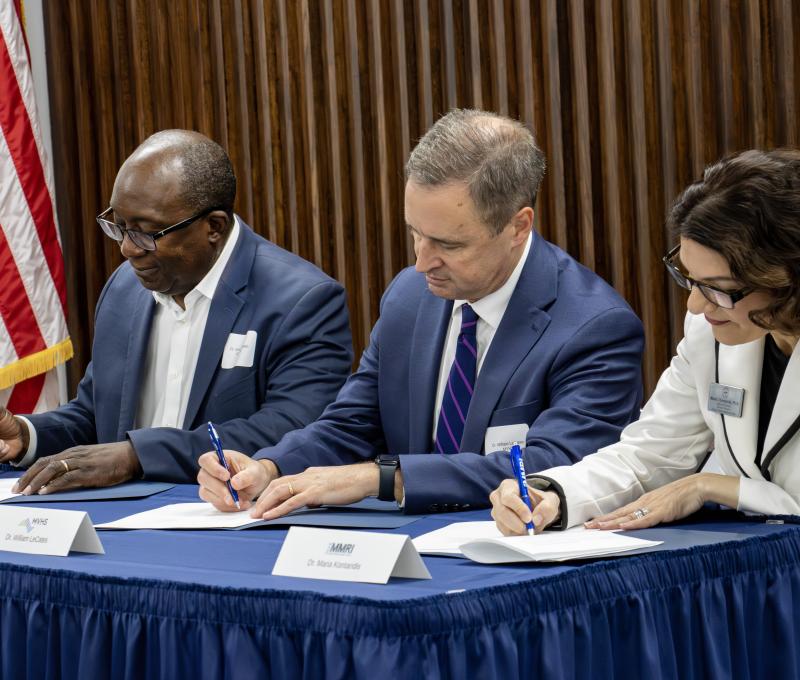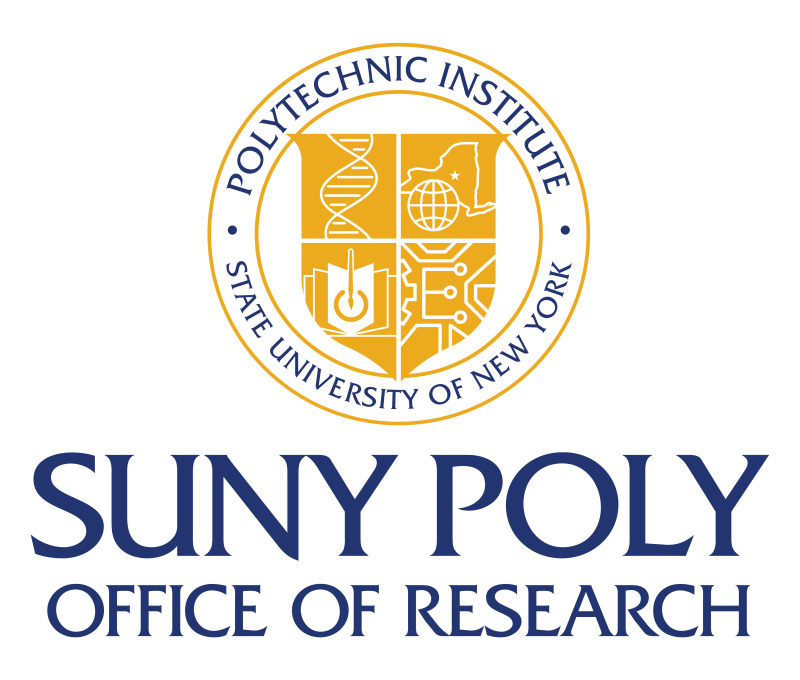SUNY CNSE/SUNYIT Professor Awarded National Grant to Pursue
Innovative
Cancer Studies

$1.65 Million To Fund Research On Environmentally Influenced Cancers
Albany, NY – The newly merged SUNY College of Nanoscale Science and Engineering (CNSE)/SUNY Institute of Technology (SUNYIT) institution today announced the National Institute of Environmental Health Sciences has awarded a $1.65 million grant to further research conducted by nanobioscience professor Dr. Thomas Begley that identifies signals which cancer cells use to respond to their environment.
“Governor Andrew Cuomo’s unparalleled commitment to the continued advancement of nanotechnology research is clearly having a remarkable impact on a wide array of industries, including health care,” said Dr. Robert E. Geer, Senior Vice President and Chief Operating Officer of SUNY CNSE/SUNYIT. “This award highlights the incredible potential of the work our faculty are doing, and we are proud of Dr. Begley’s accomplishments.”
“This award recognizes the world-class expertise and technology being developed by New York State and highlights the continued strength of CNSE/SUNYIT,” said Dr. Begley, SUNY CNSE/SUNYIT Associate Professor of Nanobioscience; Associate Vice President and Director of the Systems Toxicology Laboratory and Lead Investigator on the research. “It’s an honor for those of us leading this project to receive this prestigious grant. The recognition is especially meaningful, given the research’s potential to positively impact the lives of those who suffer from cancer and other diseases.”
The five-year grant will allow researchers at SUNY CNSE/SUNYIT, assisted by graduate and post-doctoral students, to use nanotechnology-enabled methods and human cancer cells to identify signals that are influenced by the environment. The newly funded project will also be performed in collaboration with Professor Peter Dedon at the Massachusetts Institute of Technology, and together, the combined team will provide new technologies and insights that also have the potential to be exploited for cancer diagnostics.
Specifically, Dr. Begley’s research focuses on miscommunications related to information processing among cells, which can lead to diseases like cancer, diabetes, and autoimmunity issues. Through the study of cell signaling—how cancer cells respond to environmental conditions of oxygen stress and regulate stress response systems—such diseases can be treated more effectively.
Dr. Begley’s team is among a number of groups at SUNY CNSE/SUNYIT working on the development of devices for monitoring and treating advanced tumors. The results of these studies have the potential to lead to new cancer therapies as well as inform how environmental stressors manage gene expression, which is the process by which genetic instructions are used to create gene products like proteins.
The National Institute of Environmental Health Sciences, (NIEHS), located in North Carolina, is one of 27 research institutes and centers that comprise the National Institutes of Health (NIH) and the U.S. Department of Health and Human Services (DHHS). The mission of NIEHS is to discover how the environment affects people in order to promote healthier lives.
#################### About SUNY CNSE. The SUNY College of Nanoscale Science and Engineering (CNSE) is the world leader in the emerging disciplines of nanoscience, nanoengineering, nanobioscience, and nanoeconomics. CNSE represents the world’s most advanced university-driven research enterprise, with more than $20 billion in high-tech investments and over 300 corporate partners. The 1.3 million-square-foot Albany NanoTech megaplex is home to more than 3,100 scientists, researchers, engineers, students, and faculty. CNSE maintains a statewide footprint, operating the Smart Cities Technology Innovation Center (SCiTI) at Kiernan Plaza in Albany, the Solar Energy Development Center in Halfmoon, the Photovoltaic Manufacturing and Technology Development Facility in Rochester, and the Smart System Technology and Commercialization Center (STC) in Canandaigua. CNSE co-founded and manages the Computer Chip Commercialization Center (Quad-C) at SUNYIT and is lead developer of the Marcy Nanocenter site in Utica, as well as the Buffalo High-Tech Manufacturing Complex, Buffalo Information Technologies Innovation and Commercialization Hub, and Medical Innovation and Commercialization Hub. For information, visit www.sunycnse.com.
About SUNYIT. SUNYIT, the State University of New York Institute of Technology at Utica/Rome, is New York’s public polytechnic, offering undergraduate and graduate degree programs in technology, professional studies, and the arts and sciences. Its academic offerings in technology include engineering, cybersecurity, computer science, and the engineering technologies; programs in professional studies include business, communication, and nursing; and offerings in the arts and sciences range from sciences to humanities to the social sciences. Athletics, recreational, cultural and campus life programs, events and activities complement the academic experience. Founded in 1966, SUNYIT is a unique high-tech learning environment on hundreds of acres, offering degree programs online as well as on campus. The SUNYIT family of alumni now numbers 25,000. For information, visit www.sunyit.edu.
####
Media Contact:
Jerry Gretzinger, VP of Strategic Communications and Public Relations (518) 956-7359 | ggretzinger@albany.edu








